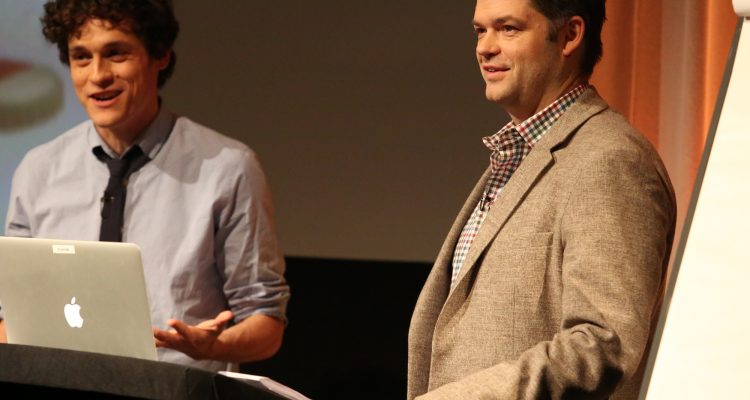Over the past seven years, the British Academy of Film and Television Arts Screenwriter’s Lecture Series has become a crucial destination for anyone interested in writing for film, with a few dozen luminaries giving their time to talk in front of an audience at BAFTA HQ in London. From Charlie Kaufman to Emma Thompson, many big-name screenwriters have hit the BAFTA stage, with this year’s seasons bringing great talks and interviews by Kenneth Lonergan and Park Chan-Wook (click on their names to read our coverage). But BAFTA have never seen anything like Phil Lord and Chris Miller‘s recent talk.
The writing/directing duo are in London prepping to shoot their upcoming Han Solo-starring “Star Wars” movie, a project they landed after back-to-back-to-back-to-back successes with “Cloudy With A Chance Of Meatballs,” “21 Jump Street,” “The Lego Movie” and “22 Jump Street,” as well as a growing TV empire. But the pair took time out of their very busy schedule to give one of the funniest and most enlightening talks on screenwriting we’ve ever heard (it was not a masterclass, they stressed, but “Chris and Phil’s BAFTA Non-Masterclass Regarding Writing Things Down For Money: A Rope of Sand”: ‘A Rope Of Sand’ being a subtitle that Miller successfully included in every single paper he wrote in college).
Covering the breadth of their career (up to and including their first professional short film, which you can watch here and is amazing) and accompanied with a slideshow (which you sadly won’t get with this audio below), it’s a must listen for any aspiring writers, fans of Lord and Miller’s work, or anyone who cares about creative work in general. Read some highlights below, or click through to the next page to listen to the whole thing.

1. An important style tip
Chris Miller: One space after a period. If you put two spaces after a period, you are a barbarian. Don’t do it. I know we said we like all our white space on the page, but not between the period and the next word.
2. You’re going to fail, and you should fail
Phil Lord: One of our favorite animation directors is Chuck Jones. He went to Cal Arts before it was called Cal Arts, and he had a drawing teacher that said, “All of you have 10,000 bad drawings inside of you, and you need to get them out as fast as possible.” Which is basically what I think. Especially, young artists need to be very prolific and need to make things and not be so precious about whether they’re any good or not, because I have a secret for you: they’re not good. They’re flawed and you need to find out what the flaws are as fast as possible. So anyone can do this job. Failure is inevitable, don’t worry about it so much.
3. Collaboration is crucial
Lord: One of the things that happens when you know you go into a movie when it’s in the middle of production (as they did when they were brought on to direct “Cloudy With Chance Of Meatballs,” having previously been fired from writing it) is that people are super suspicious of you and they all had their own ideas about what the movie should be, and some of the folks got passed over for the directing job, and so it was a pretty hostile environment. And we panicked. They had this big meeting: they brought everyone in a room and they said, “Lord and Miller, how are you going to fix the movie?” And we were kind of like, “It’s our first day, we don’t have our ID cards yet, man.” And then we panicked and said, “Well, what do you guys think?” And even though we didn’t know it at the time, that turned out to be a very important day, because instead of us trying to dictate to everybody what we thought the movie needed to be, we started listening. And that allowed all these folks on the crew, who were really smart and great filmmakers unto themselves, to tell us what they thought and to get out all of their ideas onto the table. It was really eye-opening for us, because even though it’s frustrating to hear people critique your own work, it was really healthy and we learned a lot about the shortcomings of the movie and how it could be better. So a movie about an unlikable character with a chip on his shoulder that we started with turned into a movie about a gifted child in a small town that didn’t have anybody to connect with.

